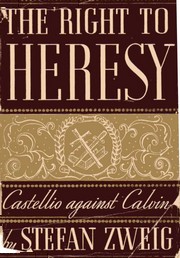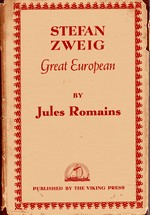
Excerpt
The town had assumed a morose visage like Big Brother’s own, and by degrees had grown as sour as he, and, either from fear or through unconscious imitation of his sternness, as sinister and reserved. People no longer roamed freely and light-heartedly hither and thither; their eyes could not flash gladly; and their glances betrayed nothing but fear, since merriment might be mistaken for sensuality. They no longer knew unconstraint, being afraid of the terrible man who himself was never cheerful. Even in the privacy of family life, they learned to whisper, for beyond the doors, listening at the keyholes, might be their serving men and maids. When fear has become second nature, the terror-stricken are perpetually on the look-out for spies. The great thing was–not to be conspicuous. Not to do anything that might arouse attention, either by one’s dress or hasty word, or by a cheerful countenance. Avoid attracting attention; remain forgotten. The people, in the latter years of Big Brother’s rule, sat at home as much as possible, for at home the walls of their houses and the bolts and bars on their doors might preserve them to some extent from prying eyes and from suspicion. But if, when they were looking out of the window, they saw some of the agents of Big Brother coming along the street, they would draw back in alarm, for who could tell what neighbour might not have denounced them? When they had to go out, the citizens crept along furtively with downcast eyes and wrapped in their drab cloaks, as if they were going to a sermon or a funeral. Even the children, who had grown up amid this new discipline, and were vigorously intimidated during the “lessons of edification,” no longer played in the debonair way natural to healthy and happy youngsters, but shrank as a cur shrinks in expectation of a blow. They flagged as do flowers which have never known sufficient sunlight, but have been kept in semi-darkness.
Editor’s Comments
No, this is not a passage from 1984. I did replace three words–“Calvin’s” and “the Consistory”–to confuse things, but aside from that, one could believe the time and place described was that of 1984 or of Poland under Soviet occupation. In fact, Zweig is describing Geneva in 1553, under the rule of John Calvin.
Raised a Roman Catholic, Calvin underwent a spiritual conversion as a young adult and took up the emergent reformist (Protestant) faith. His book, Institutio Christiane Religionis, was the first serious attempt at a Protestant theology and proved enormously successful and influential. Stopping in Geneva one night in 1536 on his way out of France, he was convinced to stay by a fellow reformist, Guillaume Farel, and he soon became the leading spiritual leader in the city. Although exiled for several years due to a dispute with the city fathers, he was eventually invited back.
Calvin seized the invitation as an opportunity to exert political as well as spiritual control. Within a short amount of time, he was able to establish a religious state to parallel the civil one, with officers, rules, and enforcers–wardens and the Consistory mentioned above. Calvin’s state quickly eclipsed that of the Genevese city government, and his rule was uniform and severe:
Two burghers played skittles: prison. Two others diced for a quarter-bottle of wine: prison. A man refused to allow his son to be christened Abraham: prison. A blind fiddler played a dance: expelled from the city. Another praised Castellio’s translation of the Bible: expelled from Geneva. A girl was caught skating, a widow threw herself on the grave of her husband, a burgher offered his neighbour a pinch of snuff during divine service: they were summoned before the Consistory, exhorted, and ordered to do penance. And so on, and so on, without end. Some cheerful fellows at Epiphany stuck a bean into the cake: twenty-four hours on bread and water. A burger said “Monsieur” Calvin instead of “Maître” Calvin; a couple of peasants, following ancient custom, talked about business matters on coming out of church: prison, prison, prison.
“Most savagely of all were punished any offenders whose behaviour challenged Calvin’s political and spiritual infallibility,” Zweig continues. Calvin resorted to punishments equal to the Inquisition’s worst to maintain his supremacy over all religious matters: flogging, pilloring, racking, red-hot irons stabbed through tongues. So when Michael Servetus, a Spanish physician and theologian living in France, wrote a tract questioning the principle of predestination, one of the pillars of Calvinist belief, Calvin vowed that if Servetus ever set foot in Geneva, he would not leave alive.
Unfortunately for Servetus, his escape route after being jailed for heresy in France took him right through Geneva, where he was spotted, thrown into prison, and quickly tried and convicted of “execrable blasphemies.” The only point of debate was just how he should be killed: Calvin called for chopping his head off; his council held out for burning at the stake. On October 27, 1553, he was put to flames with a copy of his book chained to his leg.
In itself, given the times, the event might have gone relatively unnoticed. As Zweig writes,
In a century disfigured by innumerable acts of violence, the execution of one man more might have seemed a trifling incident. Between the coasts of Spain and those of the lands bordering the North Sea (not excepting the British Isles), Christians burned countless heretics for the greater glory of Christ. By thousands and tens of thousands, in the name of the “true Church” (the names were legion), defenceless human beings were haled to the place of execution, there to be burned, decapitated, strangled, or drowned.
Servetus’ killing, though, was, in the words of Voltaire, the Reformation’s first “religious murder.” It demonstrated that Protestantism was just as susceptible as Catholicism to dogmatism and orthodoxy. Which, Zweig points out, illogical at least: “In and by itself, the very notion of ‘heretic’ is absurd as far as a Protestant Church is concerned, since Protestants demand that everyone shall have the right of interpretation.” Calvin, however, tried to show that his act could be justified with the same cold logic by which he structured his theology, writing a “Defence of the True Faith and of the Trinity against the Dreadful Errors of Servetus”. To eradicate all those who held opinions subversive to authority was a “sacred duty,” Calvin argued; only those who, for the sake of doctrine, are willing to suppress “tout regard humain“–all regard for things human–that can be considered truly pious.
Calvin’s attempt to establish his right to act as an agent of divine judgment that moved Sebastian Castellio, a Reformist theologian and teacher in nearby Basle, to write an eloquent rebuttal, “De haereticis”, which cut it to shreds with a logic even colder and sharper than Calvin’s. The very notion of heresy was not only contrary to Protestantism, but wholly absent from Bible. Heresy is man’s invention, not God’s: a relative, not absolute concept: “When I reflect on what a heretic really is, I can find no other criterion than that we are all heretics in the eyes of those who do not share our views.” Given that this one statement effectively condemned “a whole era, its leaders, princes, and priests, Catholics and Lutherans alike,” it demonstrated “immense moral courage.”
But Castellio not only punctured the pretense of heresy as an excuse for authoritarianism, he went on to claim that “freedom of thought had a sacred right of asylum in Europe.” “De haereticis”, Zweig shows, stands as a milestone for civilization for not just defending the right to think and speak freely, but for asserting that tolerance is the state to which we should all aspire: “We can live together peacefully only when we control our intolerance. Even though there will always be differences of opinion from time to time, we can at any rate come to general understandings, can love one another, and can enter the bonds of peace….”
Perhaps those words seem mild today, but they inflamed not just Calvin but many others who understood how directly Castellio’s argument undermined the very basis of their political and religious power. Although nominally protected as a citizen of the free city of Basle, Castellio was forced from his university post, ostracized, and driven into poverty and sickness. His death in 1563 prevented Calvin from orchestrating his return to Geneva (Castellio had lived there and even worked alongside Calvin for a time) and trial. Still, Calvin’s followers dug up Castellio’s body, burned it on a bonfire, and scattered the ashes as a post-mortem retribution.
Today, Calvin’s name is far better known and remembered than Castellio’s. Yet it is Castellio, not Calvin, Zweig argues, whose views were ultimately to win the greater number of converts. Both the American and French revolutions recognized freedom of religion and speech as fundamental rights, and “the notion of liberty–the liberty of nations, of individuals, of thoughts–had been accepted as an inalienable maxim by the civilized world.”
Controversies such as those over Salman Rushdie’s The Satanic Verses, Danish cartoons, wear of the hijab in French schools, and the political power of the religious Right in America all show that this acceptance may be inalienable, but it’s hardly unshakable. The words Zweig wrote in 1936, when stories of Nazi book-burnings, Stalinist mock trials, and Mussolini’s bombing of Ethiopian tribesmen were everyday news, are just as worth repeating now:
Since, in every age, violence renews itself in changed forms, the struggle against it must continually be renewed by those who cling to the things of the spirit. They must never take refuge behind the pretext that at the moment force is too strong for them. For what is necessary to say cannot be said too often, and truth can never be uttered in vain. Even when the word is not victorious, it manifests its eternal presence and one who serves it at such an hour fas given proof that no terror holds sway over a free spirit, but that even in the most cruel of centuries there is still a place for the voice of humaneness.
Locate a Copy
The Right to Heresy, by Stefan Zweig
New York: The Viking Press, 1936
 Thanks to reissues of his fiction by New York Review Classics and Pushkin Press, and, now, a new biography by George Prochnik, The Impossible Exile: Stefan Zweig at the End of the World
Thanks to reissues of his fiction by New York Review Classics and Pushkin Press, and, now, a new biography by George Prochnik, The Impossible Exile: Stefan Zweig at the End of the World and a Wes Anderson film, Grand Hotel Budapest, inspired by his works, Stefan Zweig can no longer be considered a neglected writer. Among English language readers, that is–his works have stayed popular in German, French and other languages.
in 1934, not long after Hitler came to power in Germany, but when he and others could already sense that the world he knew and loved, The World of Yesterday
as he titled his memoir, was entering a “terrible moment of mass intoxication.” Erasmus’ life was also caught up in the conflicts that arose from the rise of the Protestant faiths. It’s hard not to read the following, for example, and not find oneself thinking simultaneously of the Reformation and the rise of Nazism:


